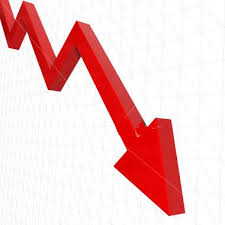
ZIMBABWE’S annual inflation for the month of July rose to 0,31% from -0,08% recorded in June, official figures have shown as the country slipped out of five months deflation period.
TARISAI MANDIZHA BUSINESS REPORTER
Deflation occurs when there is a decrease in the general price level of goods and services and happens when the inflation rate falls below 0%.
Zimbabwe slipped into deflation in February when year-on-year inflation shed 0,90 percentage points to -0,49% from the January statistics.
The new data means that prices as measured by the all items consumer price index increased by an average of 0,31 percentage points between July 2013 and July 2014, the Zimbabwe National Statistics Agency (Zimstat) said on Friday.
Zimstat’s data would come as relief to companies that had recorded low uptake of products due to a slowdown in consumer spending and economic activity.
Deflation had exerted a negative impact on the country’s economic conditions as it acts as a tax on the borrowers and the liquid asset holders simultaneously.
Zimstat said the year-on-year Food and Non-Alcoholic beverages inflation prone to transitory shocks stood at -2,88% while the non-food inflation rate was 1,91%. The month-on-month inflation rate in July 2014 was 0,01% gaining 0,04 percentage points on the June 2014 rate of -0,03%.
- Chamisa under fire over US$120K donation
- Mavhunga puts DeMbare into Chibuku quarterfinals
- Pension funds bet on Cabora Bassa oilfields
- Councils defy govt fire tender directive
Keep Reading
Economist John Robertson said prices will remain stable.
“Deflation has come to an end, we are now on inflation. Prices will remain stable,” he said.
He, however, said the economy will remain fragile as traders were reluctant to increase prices as they feel they might lose their market share to other competitors.
In a report after the annual Article IV consultation, the International Monetary Fund projected inflation to be low this year at 0,2% rising to 1,2 % in 2015. IMF said a closer look at the Consumer Price Index components showed that deflationary pressures have been stronger in traded sectors suggesting that pass-through from a depreciating rand also played an important role.
“On the upside temporarily falling prices benefit consumers with job security. By delivering a boost to aggregate demand, falling prices may contribute to eroding the country’s negative output. Deflation could also correct the existing overvaluation in the real exchange although that would require a process of non-traded inputs and final goods to fall faster that the prices of traded goods which has been the case so far,” IMF said.
In a latest report, the Reserve Bank of Zimbabwe said developments in the South African rand/Unites States dollar exchange rate, international oil prices, the pricing of utilities and the level of aggregate demand in the domestic economy will continue to influence inflation developments.











